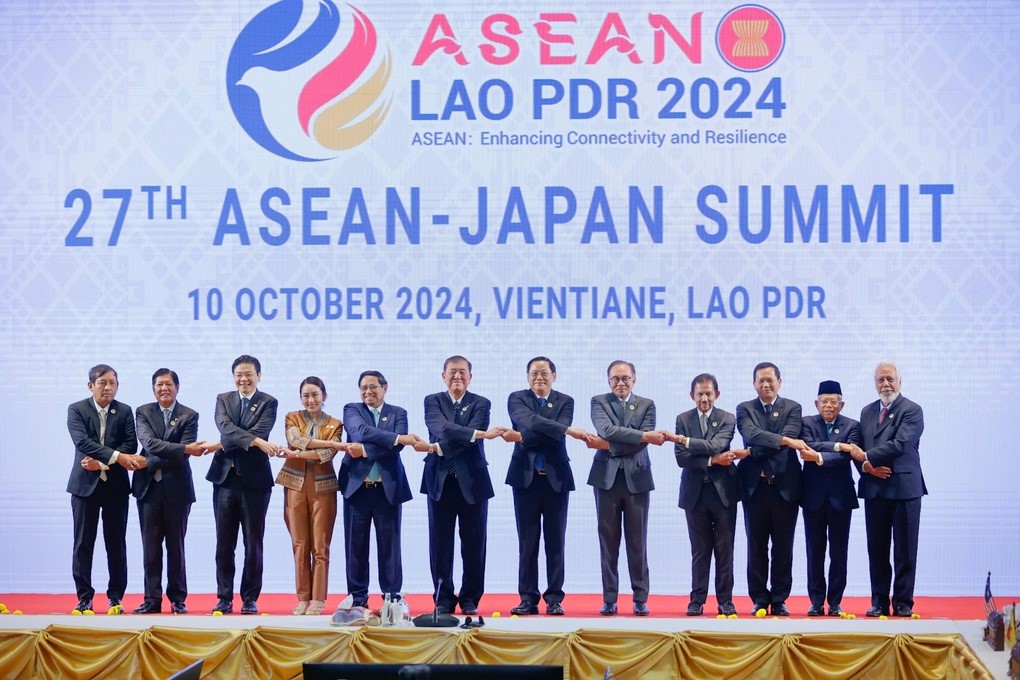On October 10, Prime Minister Phạm Minh Chính led the Vietnamese delegation to the 27th ASEAN-Japan Summit. Japan is currently ASEAN's fourth-largest trading partner, with bilateral trade reaching $239.4 billion. It is also the fifth-largest foreign direct investor in ASEAN, with $14.5 billion in investments in 2023. Leaders from both sides praised the positive progress in ASEAN-Japan relations and reaffirmed their commitment to further cooperation.
ASEAN and Japan agreed to deepen their economic, trade, and investment partnerships while enhancing collaboration in defense, maritime security, transnational crime prevention, and disaster management. Particular emphasis will be placed on scientific and technological cooperation, innovation, the development of green infrastructure, electric vehicle ecosystems, energy, and climate change mitigation.
In his remarks, Prime Minister Phạm Minh Chính highlighted that economic, trade, and investment cooperation should continue to be the driving force connecting the two regions' economies. He urged Japan to continue supporting ASEAN and the Mekong sub-region in climate change adaptation, energy transition, and emission reduction commitments to foster a resilient and sustainable future and enhance responses to climate change, disasters, and natural calamities. This includes initiatives like the "Asian Zero Emission Community."

Japanese and ASEAN leaders at the 27th ASEAN-Japan Summit (Photo: Doan Bac)
The Prime Minister also called on Japan to support ASEAN's common stance on the South China Sea, advocating for peaceful dispute resolution and for efforts to finalize an effective, substantive Code of Conduct (COC) in the South China Sea by international law, particularly the 1982 United Nations Convention on the Law of the Sea (UNCLOS). The goal is to make the South China Sea a peaceful, stable, cooperative, and sustainable development region.